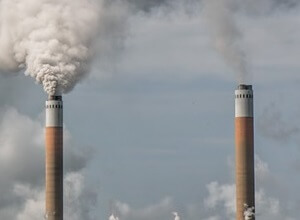 A US President’s legacy is not often a talking point amongst UK businesses; despite the Moon Landings setting a high bar most have focussed on charitable activities and libraries dedicated to the President.
A US President’s legacy is not often a talking point amongst UK businesses; despite the Moon Landings setting a high bar most have focussed on charitable activities and libraries dedicated to the President.
It is therefore interesting to see Barack Obama already preparing himself for his legacy, namely a US and therefore worldwide energy revolution.
The Environmental Protection Agency under Obama’s directive is to focus the country on slashing the pollution from US power plants by 30% by 2030.
Of course as with any American revolution this will be met with stiff opposition from fervent Republicans but it is to be hoped that this could be the catalyst for a pan global policy on climate change.
Recently, as covered in our blog earlier this year, both Twitter and Amazon Web Services (AWS) have been decried for their apparent loyalty to “dirty” energy, as a Greenpeace spokesman explained:
“If you look at their (AWS) data centres, their heaviest concentration is in Virginia which has a very dirty energy grid. They have really done nothing at this point to try to leverage their buying power to secure clean energy.”
It is regional generation networks such as these that the Obama government is looking to tackle.
Obama said:
“Right now there are no national limits to the amount of carbon pollution that existing plants can pump into the air we breathe. None”
“They can dump unlimited amounts of carbon pollution into the air. It’s not smart, it’s not safe, and it doesn’t make sense.”
Obama’s plan will require:
- Switching from coal to cleaner-burning natural gas;
- Forming cap-and-trade markets;
- Expanding renewable energy sources such as wind and solar power;
- Encouraging customers to use less energy by moving to more efficient heating and cooling systems and appliances.
It is fair to say however that emissions in recent years have been falling in the US as some states have seized the opportunity of abundant shale gas suppliers to switch away from their prior reliance on coal.
Despite this trend, Obama expects more. Whilst this may seem a US centric issue and of little relevance to other countries, not least the UK, we only need to consider the ‘Global Complex’ concept whereby energy demand and supply in one region of the world can have both direct and indirect effects on the behaviours in the energy markets in countries many thousands of miles away.
Indeed a key recipient of this surplus US coal in recent years has been the UK, with a staggering 82% of coal burnt in the UK being imported from the US whilst our indigenous coal mines can now be counted on one hand.
Our 2012/13 fuel mix underlined our dependence on coal as the core commodity driving electricity generation in the UK with:
- Coal: 38%
- Gas: 28%
- Nuclear: 21%
- Renewable: 11%
- Other sources: 2%
Producing
- CO2 of 469g/kWh
- High Level Radioactive Waste of 0.00185g/kWh
Clearly we, in the UK, are only too willing to remain a recipient of imported coal.
Given the focus of Obama’s intent is coal fired power plants and dirty grids like Virginia and given the targets will be set subjectively with Coal dependent states more heavily targeted than green thinking ones, the likely impact on such plant is permanent closure meaning ‘cheap’ US coal needs an outlet. Step forwards the UK.
Individual states will have until 2016 to develop their strategy to hit the targets, which will be effective across the US by 2020.
Unsurprisingly the plans have been met with cries of derision from vested interest lobbies and Republican senators and the whole bill is likely to be picked apart and neutered over time.
Republican senator Mike Enzi of Wyoming was quoted as saying:
“We’ll all be paying a lot more money for electricity – if we can get it,”
Signalling a continuation of the US’s long held belief that cheap and abundant energy sources were a democratic right.
So if the US doesn’t want it who does?
China, the new powerhouse of the world economy, has abundant supplies, as does Russia. Continental Europe is de-carbonising at a rate and so the UK is the most likely destination.
Although ‘cheap’ coal sounds attractive and a solution to the short sighted destruction of our indigenous coal mines, the net impact will see increased dominance on imported coal requiring ever larger renewable subsidies to offset our ‘dirty’ energy inheritance.
One thing we can be sure of is that the ‘cheap’ imported coal bonanza upon which we sit on the threshold, won’t be cheap when it comes to energy delivery in our homes and business premises.
To find out more visit our Business Energy Guides.
